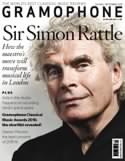Texte paru dans: / Appeared in: |
|
|
Outil de traduction (Très approximatif) |
|
|
Reviewer: David Vickers
John Walsh published Handel’s Op 5 Trio Sonatas in 1739 but Challenge’s bookletnote insinuates naively that the composer himself had full responsibility for all of the collection’s musical content. Although a few sonatas contain movements that seem to be original new compositions, it seems likely that the majority was cobbled together by Walsh without substantial alteration from Chandos Anthems, overtures from oratorios and dance music from Handel’s Covent Garden operas.
Al Ayre Español never shirk from
the chance to exaggerate – even when it undermines good work they do elsewhere.
The slow pastoral passages of the Musette in No 2 are played ideally with soft
rapture, but the middle section is ruined by far too much acceleration and
abrasive bowing; fiddlers Alexis Aguado and Kepa Arteche de la Fuente bring a
light touch to the concluding Gavotte, so it is a pity that harpsichordist and
director Eduardo López Banzo seems determined to push the tempo as quickly as
humanly possible. The Sarabande in No 3 hardly benefits from exaggerated
accentuations, and I am unconvinced by the wilful staccato manner of the
bass-line and waspish brevity of violin phrasing in the opening Andante of No 1.
The Allegro non presto in No 4 has an amiable mischievousness but the choppy,
formulaic manner adopted in the Passacaille prohibits its usually innate charm.
Fussy plucked continuo realisations by Banzo and Francisco Aguiló Matas (archlute)
propel boldly caricatured performances that will not suit everyone’s taste. If
you prefer judicious finesse and stylistic integrity to be maintained throughout
all kinds of different movements and musical moods, then look no further than
the London Handel Players (Somm), The Brook Street Band (Avie) or L’Ecole
d’Orphée (CRD). With such a distinguished discography, maybe there is room for
Al Ayre Español’s mercurial alternative, which is never boring but seldom
endearing. |
|
|
|
|
|
Cliquez l'un ou l'autre
bouton pour découvrir bien d'autres critiques de CD |
|

/0608917266320.jpg)


